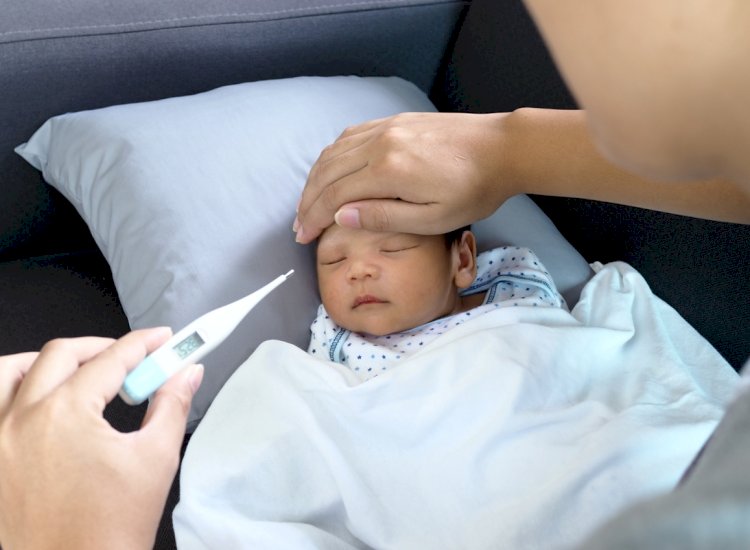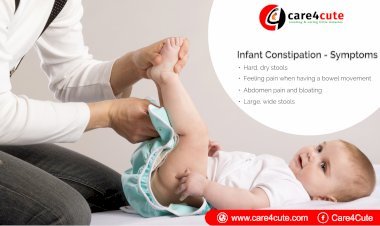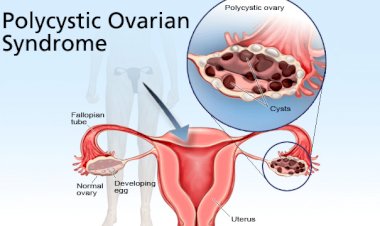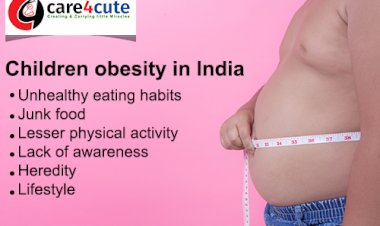Why Is My Baby's Head Hot? Exploring Possible Causes and Remedies
While babies can have higher body temperatures compared to adults, an unusually hot head may raise questions and leave you wondering about the underlying reasons.

Introduction
As a parent, it's natural to be concerned when you notice that your baby's head feels hotter than usual. While babies can have higher body temperatures compared to adults, an unusually hot head may raise questions and leave you wondering about the underlying reasons. In this article, we will delve into the various factors that can contribute to a hot baby's head and discuss potential remedies to address the issue. Remember, if you have any concerns about your baby's health, it's always best to consult a healthcare professional.
Table of Contents
- Understanding Normal Body Temperature in Babies
- Common Reasons for a Hot Baby's Head
-
- Overdressing
- Teething
- Fever
- Environmental Factors
- Physical Activity
- Tips to Help Your Baby Cool Down
-
- Adjust Clothing Layers
- Provide Adequate Hydration
- Create a Comfortable Environment
- Use Cooling Techniques
- When to Seek Medical Advice
- Conclusion
Understanding Normal Body Temperature in Babies
Before delving into the possible causes of a hot baby's head, it's important to understand what constitutes a normal body temperature in infants. The average range for a baby's body temperature is slightly higher than that of adults, typically ranging between 97°F (36.1°C) and 100.3°F (37.9°C). However, the temperature of the head can often feel warmer than the rest of the body, which is a normal physiological response.
Common Reasons for a Hot Baby's Head
Several factors can contribute to a baby's head feeling hot. Understanding these common causes can help you determine the underlying reason and address it accordingly.
1. Overdressing
One possible reason for your baby's head feeling hot is overdressing. Babies are more sensitive to temperature changes, and excessive clothing or blankets can lead to overheating. Ensure that you dress your baby appropriately for the ambient temperature, considering the weather and the layers they are wearing.
2. Teething
Teething is a milestone that most babies experience around six months of age. During this period, your baby's head may feel warmer due to increased blood flow to the gums. Teething discomfort can cause minor inflammation, resulting in a slightly elevated temperature in the head region.
3. Fever
A fever is another potential cause of a hot baby's head. While a fever is often accompanied by a rise in overall body temperature, it can manifest as a warm or hot head. Fevers can be caused by various factors, including infections, viral or bacterial illnesses, and teething. It's important to monitor your baby's overall temperature and seek medical advice if you suspect they have a fever.
4. Environmental Factors
The surrounding environment can influence your baby's body temperature, including their head. Exposure to high room temperatures, direct sunlight, or being in a crowded and poorly ventilated space can contribute to a hot head. Ensure that the room temperature is comfortable and that your baby is adequately protected from excessive heat or sunlight.
5. Physical Activity
Babies can be quite active, especially as they grow older and begin to explore their surroundings. Physical activity can cause an increase in blood circulation, leading to a hotter head. If your baby has been playing or exerting themselves, it's natural for their head to feel warmer. Allow them to rest and cool down if needed.
Tips to Help Your Baby Cool Down
If you notice that your baby's head feels excessively hot, there are several steps you can take to help them cool down and maintain a comfortable body temperature.
1. Adjust Clothing Layers
Evaluate the number of clothing layers your baby is wearing. Opt for lightweight, breathable fabrics that allow proper air circulation. Dress them in layers that can be easily removed or added as needed to regulate their body temperature.
2. Provide Adequate Hydration
Proper hydration is essential for regulating body temperature. Ensure that your baby is getting enough fluids, especially during hot weather or if they have been active. If your baby is younger than six months and exclusively breastfed or formula-fed, offer them additional feeds to keep them hydrated.
3. Create a Comfortable Environment
Maintaining a comfortable environment can help regulate your baby's body temperature. Keep the room temperature moderate, around 68°F to 72°F (20°C to 22°C), and ensure good ventilation. Use fans or air conditioning to promote air circulation, particularly during warm weather.
4. Use Cooling Techniques
To cool down your baby's head, you can try various techniques. Use a damp washcloth or a cool (not cold) compress and gently apply it to their forehead or the back of their neck. Ensure the cloth is not too cold to avoid discomfort or shock. Additionally, you can use a fan on a low setting to create a gentle breeze in the room.
When to Seek Medical Advice
While a hot baby's head is often a normal occurrence, there are situations where seeking medical advice is recommended. Contact a healthcare professional if:
- Your baby's head feels excessively hot to the touch, and they appear unwell or distressed.
- Your baby has other symptoms accompanying the hot head, such as a persistent fever, rash, or unusual behavior.
- Your instinct as a parent tells you that something may be wrong, and you are concerned about your baby's health.
Remember, it's always better to consult a healthcare professional if you have any doubts or concerns about your baby's well-being.
Conclusion
In most cases, a hot baby's head is not a cause for alarm and can be attributed to normal physiological factors. However, it's crucial to pay attention to your baby's overall well-being, monitor their temperature, and address any concerns promptly. By maintaining a comfortable environment, dressing your baby appropriately, and providing adequate hydration, you can help them stay cool and comfortable. Remember, your baby's health is paramount, so trust your instincts and seek medical advice when necessary.
References:
-
- Centers for Disease Control and Prevention. (2021). Expert Panel Reviews. Retrieved from https://www.cdc.gov/
- World Health Organization. (2021). Expert Panels. Retrieved from https://www.who.int/
- National Institutes of Health. (2021). PubMed. Retrieved from https://pubmed.ncbi.nlm.nih.gov/
- American Psychological Association. (2021). APA Style. Retrieved from https://apastyle.apa.org/
- Harvard University. (2021). Writing Center. Retrieved from https://writingcenter.fas.harvard.edu/





































Comments (0)